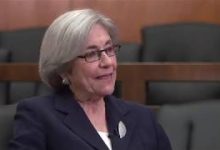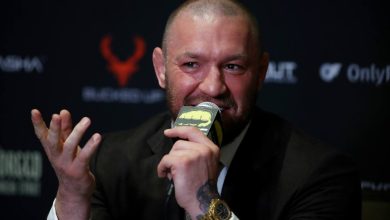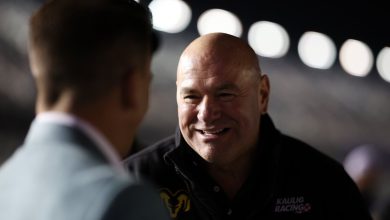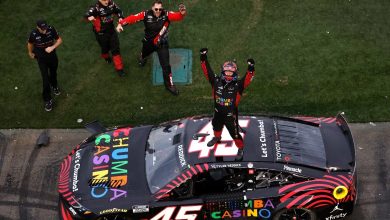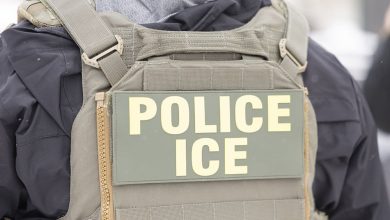NCAA Sports activities Betting Guidelines Stay After Affiliation Flip-Flops
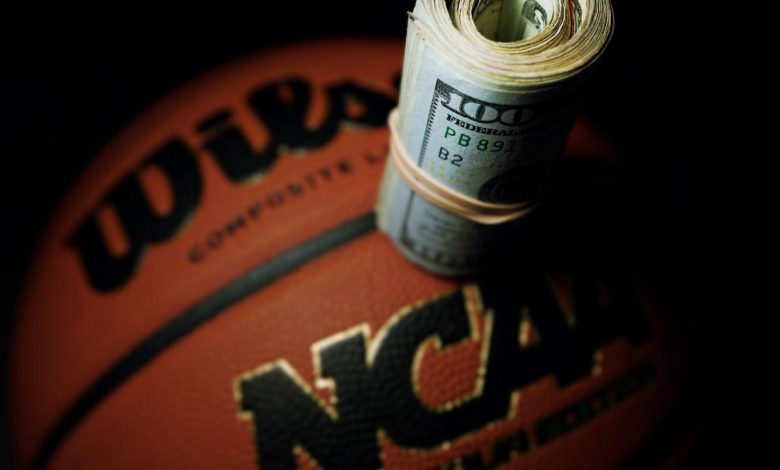
- NCAA student-athletes stay barred from betting on skilled sports activities
- The directive applies to all staff personnel and athletic departments
- An earlier proposal to elevate the professional sports activities betting ban was rescinded
NCAA student-athletes, staff members, and athletic division employees will stay prohibited from partaking in skilled sports activities betting after the governing physique of faculty sports activities flip-flopped on an earlier choice.
A wad of money is stacked on an NCAA basketball. NCAA sports activities betting guidelines will stay in place after the governing physique of collegiate sports activities modified course on a proposed modification to permit student-athletes to guess on skilled sports activities. (Picture: Shutterstock)
In a short announcement, the NCAA mentioned after a “procedural 30-day interval,” a majority of its member Division I colleges voted to “rescind” a beforehand accredited rule change that will have allowed student-athletes and related personnel to take part in authorized sports activities betting on skilled sports activities solely.
The NCAA mentioned about two-thirds of DI colleges voted to rescind the modification. The change was to cut back the regulatory workload that the NCAA, its conferences, and member colleges have in making certain that not one of the 540K student-athletes are betting on skilled sports activities.
The revision additionally would have stripped harsh penalties in opposition to student-athletes discovered to have violated the skilled sports activities betting rule, which incorporates lack of eligibility.
SEC Pushback
The proposal to rescind was prompted by Greg Sankey, the commissioner of the SEC, who is among the strongest people in faculty sports activities. Because the preliminary rule was accredited by lower than 75% of the 19-member Division I Cupboard, a gaggle chargeable for issues associated to moral conduct and athletics eligibility, every DI college was given 30 days to vote to rescind the proposal.
Sankey’s request was shortly heeded throughout the faculty panorama.
It’s not nearly student-athletes. It’s about coaches, analysts, video employees, and sports activities medication. I don’t suppose folks do effectively with blurred strains or a whole lot of gray areas. Clear statements are wanted,” Sankey mentioned, referring to the truth that the ban on all faculty sports activities betting was to stay.
Sankey mentioned he helps the NCAA’s continued academic packages associated to sports activities betting and decreasing the results of a participant discovered to have been in violation.
“The notion, ‘Do it as soon as and also you’re out ceaselessly,’ that’s not likely education-based,” Sankey mentioned. “Our need can be that the coverage and steering stay, however there’s extra thought on the way it’s utilized to younger folks.”
Offshore Win?
The NCAA’s choice to maintain its ban on student-athletes from partaking in any type of sports activities betting in place may very well be counterintuitive and result in some playing on offshore web sites. Such on-line sportsbooks aren’t regulated by any state gaming company or entity, as are authorized sports activities playing operators.
Authorized sportsbooks can shortly pinpoint an unqualified bettor, reminiscent of a student-athlete. An offshore e book sometimes doesn’t make use of such monitoring providers.
A 2023 NCAA survey discovered that 58% of 18- to 22-year-olds are collaborating in sports activities betting. On faculty campuses, participation is much more widespread, with 67% reporting collaborating in a minimum of one sports activities betting exercise over the previous 12 months and 35% admitting that they used a scholar bookmaker.
Greater than 4 in 10 have guess on their college’s groups. The NCAA estimates that about 20% of the faculty scholar inhabitants has a minimum of one dangerous conduct associated to drawback playing.

